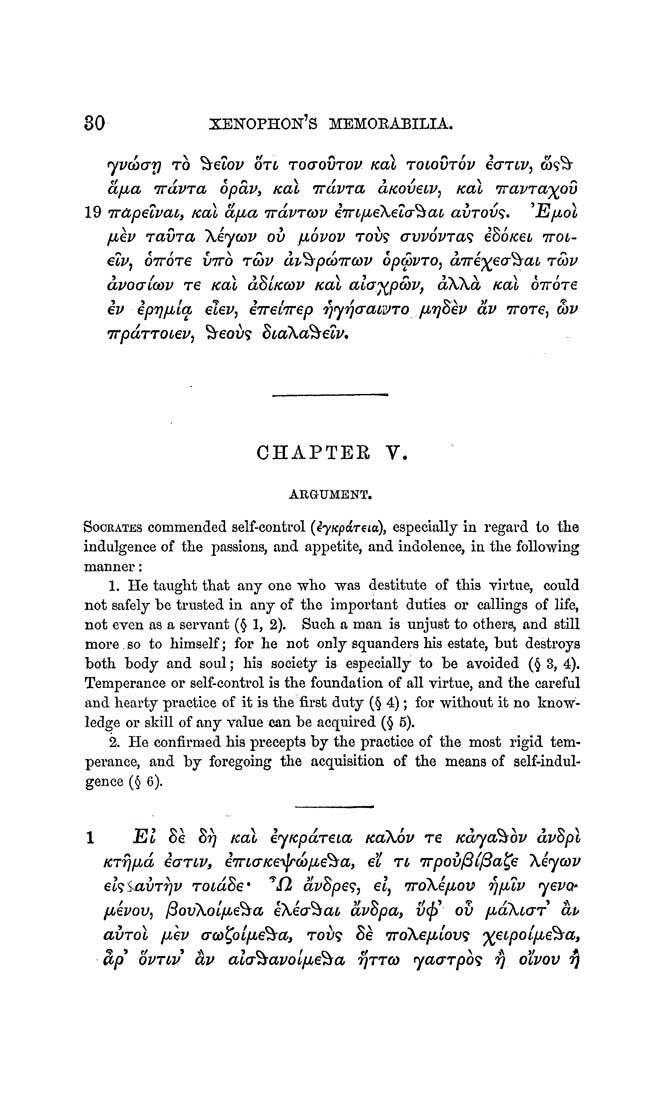80 xenophon's memorabilia.
yvcoay to ^elov oTt Toaomov Kal TotovTov iaTtv, &s^
dpta TTavTa bpdv, Kal TTavTa dKovetv, Kal TTavTaxov
19 TTapelvat, Kal dpta TTdvTcov iTTtpteXela^at amovs* ^Eptol
ptev Tama Xeycov ov ptbvov tovs avvovTas iSoKet TTOt¬
elv, OTrbTe VTTb tcov dv^pcoTTCOV bptovTO, dTTex^or^ctt Tcbv
dvoatcov Te Kal dSlKcov Kal ala'XpcbVj dXXd Kal bnoTe
iv ipyptlct elev, iTTeiTTep yyyaatv^ToptySev dv TTOTe, oov
TTpaTTOtev, ^eovs StaXa^elv.
CHAPTER V.
ARGUMENT.
Socrates commended self-control {eyKpdreia}, especially in regard to the
indulgence of the passions, and appetite, and indolence, in the following
manner:
1. He taught that any one who was destitute of this virtue, could
not safely be trusted in any of the important duties or callings of life,
not even as a servant (§ 1, 2). Such a man is unjust to others, and still
more.so to himself; for he not only squanders his estate, but destroys
both body and soul; his society is especially to be avoided (§ 3, 4).
Temperance or self-control is the foundation of all virtue, and the careful
and hearty practice of it is the first duty (§ 4); for without it no know¬
ledge or skill of any value can be acquired (§ 6).
2. He confirmed his precepts by the practice of the most rigid tem¬
perance, and by foregoing the acquisition of the means of self-indul¬
gence (§ 6).
1 Et 86 897 Kal eyKpdTeta KaXbv Te Kdya^bv dvSpl
KTyptd iaTtv, iTTtaKe'^Jrcopte^a, et Tt TTpov/3ipa^e Xeycov
eisSximyv TotdSe* ^fl dvSpes, ei, TToXeptov ypblv yevct-
pbivov, l3ovXolpbe^a eXea^at dvSpa, vcjx ov ptdXtaT dv
amol ptev aoo^otpte^a, tovs Se TToXeptlovs ^e^poZ/^eS^a,
dp ovTtv dv ala^avolpte^a tJttco yaaTpbs fj otvov y
|








